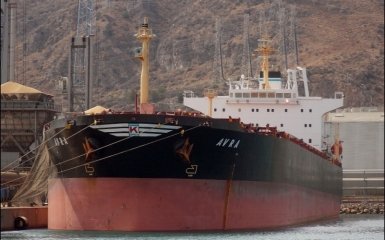Swedish law enforcement continues to establish the circumstances of the cut of the telecommunications cables in the Baltic Sea, suggesting that it was a sabotage that could have been carried out by a ship from China.
Points of attention
- Swedish law enforcement officers are investigating the sabotage of telecommunications cables in the Baltic Sea, suspecting that a Chinese ship, Yi Peng 3, may have been involved.
- The vessel Yi Peng 3 changed its route and began carrying Russian cargo, drawing attention to its potential role in Russian exports.
- European intelligence services rule out the involvement of the Chinese government in the sabotage but consider the possible involvement of the Russian side.
- The vessel Yi Peng 3 is now guarded by NATO warships as investigations continue, with the ship's owner cooperating but refusing to comment.
- The ship's captain, a Chinese citizen, is suspected of acting on the instructions of the Russian special services, adding complexity to the investigation.
What is known about the alleged involvement of a Chinese ship in the breakdown of telecommunications cables in the Baltic Sea
Swedish law enforcement officials are considering a diversion, in which the Chinese vessel Yi Peng 3 deliberately dragged its anchor about 100 miles.
The ship is currently in international waters under the surveillance of NATO warships.
According to Swedish investigators, on November 15, the Chinese bulk carrier Yi Peng 3 left the Russian port of Ust-Luga. During the movement, the ship's anchor cut two communication cables: first between Sweden and Lithuania, and later between Germany and Finland.

At the same time, during the incidents, the ship's transponder stopped working, and the ship itself continued to move in zigzags.
According to the investigators, the ship's captain, a Chinese citizen, probably acted on the instructions of the Russian special services.
One of the crew members of the Chinese bulk carrier, who has Russian citizenship, is expected to be questioned.
What is known about the Chinese vessel Yi Peng 3
The ship's owner, China's Ningbo Yipeng Shipping, is cooperating with the investigation but declined to comment.
European intelligence services rule out the involvement of the Chinese government in the sabotage, but suggest that the Russian side is behind the attack.
The bulker is currently guarded by warships from Denmark, Germany and Sweden, but under international maritime law, they cannot force it to enter a NATO port.
Negotiations are ongoing with the ship's owner to gain access to the crew and question them.
The Yi Peng 3 vessel operated exclusively in Chinese waters until 2024, but later changed its route and began carrying Russian cargoes, including coal and fertilizers. This increased attention to its role in the transport chains associated with Russian exports.



